Theory of Knowledge: An anthology of ideas
-

The Allegory of the Cave | Plato in Πολιτεία (The Republic)
In The Republic Plato raises and systematically discusses such central questions of knowledge as “What is knowledge?” “Why is knowledge superior to belief?” and “How is knowledge possible?” The Allegory of the Cave is presented in The Republic as a discussion of "the effect of education (παιδεία) and the lack of it on our nature". Plato presents the allegory as a dialogue between his teacher Socrates and his brother Glaucon, in which Socrates describes the path each person must ascend if he or she is to attain knowledge and the liberation of the soul.
-
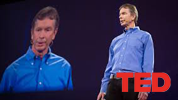
Do we see reality as it is? | Donald Hoffman
Cognitive scientist Donald Hoffman is trying to answer a big question: Do we experience the world as it really is ... or as we need it to be? In this ever so slightly mind-blowing talk, he ponders how our minds construct reality for us.
-

The Four Idols | Francis Bacon in Novum Organum Scientiarum
The Novum Organum Scientiarum (‘new instrument of science’), is a philosophical work by Francis Bacon, written in Latin and published in 1620. The title is a reference to Aristotle's work Organon, which was his treatise on logic and syllogism. In The Four Idols Bacon classifies the intellectual fallacies of his time under four headings which he called idols—an image, in this case held in the mind, which receives veneration but is without substance in itself.
-
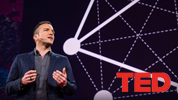
A visual history of human knowledge | Manuel Lima
How does knowledge grow? Sometimes it begins with one insight and grows into many branches; other times it grows as a complex and interconnected network. Infographics expert Manuel Lima explores the thousand-year history of mapping data — from languages to dynasties — using trees and networks of information. It's a fascinating history of visualizations, and a look into humanity's urge to map what we know.
-

Fourth Meditation, Part 2: Truth and Error | René Descartes in Meditationes de prima philosophia
The Fourth Meditation: Of Truth and Error is Descartes' attempt to answer the question arising from his previous meditation namely, that if God is perfectly good and the source of all that is, how is there room for error or falsehood? The meditation is structured in a simple fashion by aiming to solve a single problem: how to avoid error and arrive at the truth. Underlying his examination is the basic dichotomy: discerning the true from the false.
-

Mind Design | Stephen Pinker in The Language Instinct
Stephen Pinker cites philosopher and experimental psycholinguist Jerry Fodor's use of the "sentence perception module" as evidence of a universally structured human mind, the same in all places and times, that would allow people to agree on what is just and true as a matter of objective reality rather than of taste, custom, and self-interest.
-
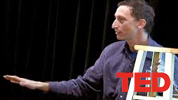
What we think we know | Jonathan Drori
Starting with four basic questions (that you may be surprised to find you can't answer), Jonathan Drori looks at the gaps in our knowledge — and specifically, what we don't about science that we might think we do.
-

Falsifiability: Karl Popper's Basic Scientific Principle
From a lecture given at Peterhouse, Cambridge, in Summer 1953, as part of a course on Developments and trends in contemporary British philosophy, organized by the British Council; originally published under the title ‘Philosophy of Science: a Personal Report’ in British Philosophy in Mid-Century, ed. C. A. Mace, 1957.
-
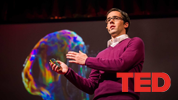
Psychedelic science | Fabian Oefner
Swiss artist and photographer Fabian Oefner is on a mission to make eye-catching art from everyday science. In this charming talk, he shows off some recent psychedelic images, including photographs of crystals as they interact with soundwaves. And, in a live demo, he shows what really happens when you mix paint with magnetic liquid—or when you set fire to whiskey.
-
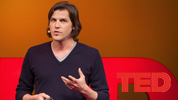
The mathematics of history | Jean-Baptiste Michel
What can mathematics say about history? According to TED Fellow Jean-Baptiste Michel, quite a lot. From changes to language to the deadliness of wars, he shows how digitized history is just starting to reveal deep underlying patterns.
-
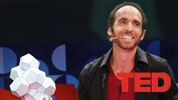
Math is forever | Eduardo Sáenz de Cabezón
With humor and charm, mathematician Eduardo Sáenz de Cabezón answers a question that’s wracked the brains of bored students the world over: What is math for? He shows the beauty of math as the backbone of science — and shows that theorems, not diamonds, are forever. In Spanish, with English subtitles.
-
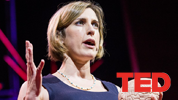
The mysterious workings of the adolescent brain | Sarah-Jayne Blakemore
Why do teenagers seem so much more impulsive, so much less self-aware than grown-ups? Cognitive neuroscientist Sarah-Jayne Blakemore compares the prefrontal cortex in adolescents to that of adults, to show us how typically "teenage" behavior is caused by the growing and developing brain.
-
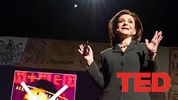
Connected, but alone? | Sherry Turkle
As we expect more from technology, do we expect less from each other? Sherry Turkle studies how our devices and online personas are redefining human connection and communication — and asks us to think deeply about the new kinds of connection we want to have.
-

The “Is Psychology a Science?” Debate | Gregg Henriques Ph.D.
Reviewing the ways in which psychology is and is not a science. (From Psychology Today Posted Jan 27, 2016)
-
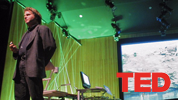
Dreams from endangered cultures | Wade Davis
With stunning photos and stories, National Geographic Explorer Wade Davis celebrates the extraordinary diversity of the world's indigenous cultures, which are disappearing from the planet at an alarming rate.
-
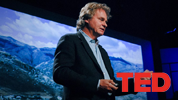
The worldwide web of belief and ritual | Wade Davis
Anthropologist Wade Davis muses on the worldwide web of belief and ritual that makes us human. He shares breathtaking photos and stories of the Elder Brothers, a group of Sierra Nevada indians whose spiritual practice holds the world in balance.


